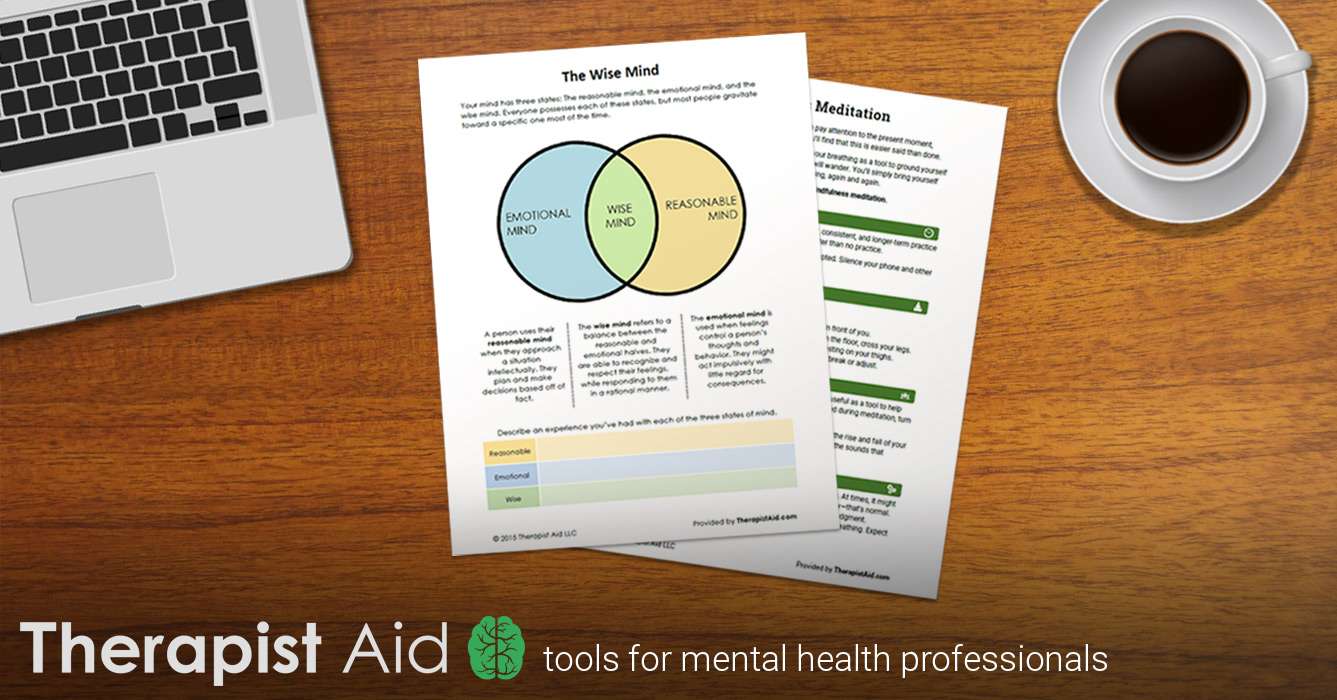People often go to therapy to find someone who won’t be judgmental when they spill the uncomfortable feelings they’ve buried. Or they might want to find someone who can help them unearth those feelings they’ve stuffed down deep.
So when you start seeing a therapist, you might promise yourself that you’ll hold nothing back—you’ve found a safe space, and you’re committed to “doing the work.” Sometimes, however, that’s easier said than done, especially when those feelings revolve around sex. Sex is something many people don’t discuss with their closest friends or even their partners. So as much as you want to be an open book in therapy, talking to your therapist about sex might still feel awkward. Is it okay to talk about sex if your therapist isn’t specifically a sex therapist? How can you even start the conversation? And what will you get out of it if you do?
To help you out, we spoke to several people who’ve had sex-related breakthroughs in “regular” therapy without seeing a dedicated sex therapist at all. Here’s what they have to say, followed by some tips for starting this conversation with your own therapist if you’re feeling ready.
“I’m realizing that internalized anti-fatness has really messed with the way I think about sex.”
“I’m a fat woman,” Julie B., 29, tells SELF, adding that she does identify as fat, though people might not be comfortable with the term. “Through therapy, I’m realizing that internalized anti-fatness has really messed with the way I think about sex.”
She explains that, when a partner doesn’t make the first move, she assumes they’re not attracted to her. “My current partner has a low libido, and even though she’s told me that she doesn’t usually get turned on until I’m turned on, I constantly feel like she…doesn’t actually like having sex with me.”
Julie’s therapist is helping her realize that anti-fat culture has made her believe she’s not attractive. Her therapist has also encouraged her to notice all the other ways her partner shows love and desire. “With my therapist’s help, my partner and I have scheduled special intimacy time during which we might have sex, but we might also just make out a little or talk about how we each experience sexual desire,” Julie says. “So I can understand her perspective when my brain spirals.”
“I had been so in my own head, I didn’t consider external factors.”
When the pandemic hit and Abigail G., 24, suddenly wasn’t as interested in sex, she asked her therapist for solutions. “I felt so disconnected from my identity—plus, I felt a huge weight that I wasn’t able to please my partner sexually. I was putting a lot of pressure on myself to feel aroused and just couldn’t get there,” she tells SELF.
Abigail’s therapist asked her to take a moment to consider how her overall circumstances might be impacting her libido. She and her partner had moved in with his parents for six months, and then, after they went home, her sister crashed on the couch in their one-bedroom apartment for three months. “Thin walls and family are certainly the antitheses of setting the mood,” Abigail explains. “But I had been so in my own head [about my sex drive], I didn’t consider those external factors.”
5 of 8
Illustrated by: Paola Delucca.
Feelings About The Therapeutic Process
If your therapy sessions are leaving you feeling frustrated, it can be an understandably uncomfortable thing to bring this up. “It can be really awkward to share feedback or feelings with the person directly, and it can be a challenge even in therapy where there is space to do so,” Justus says.
But not discussing your pain points with the therapy itself is fruitless, too. “If therapy is not going well, that feedback can help the client and therapist to come up with new goals,” Justus says.
You might also just not “click” with your therapist, and that’s okay.
“If you don’t feel comfortable with your therapist, please tell us and we will be happy to help you find someone else,” Dr. Norman says. “We don’t take it personally.”
 People may attend talk therapy or speak with a sex therapist about sex-related issues. Both types of therapist may help people with questions or concerns about their sexuality. Therapy can help people enhance or restore their enjoyment of physical intimacy. It may also help them get to the root of distress or confusion about their sexual feelings or behaviors.
People may attend talk therapy or speak with a sex therapist about sex-related issues. Both types of therapist may help people with questions or concerns about their sexuality. Therapy can help people enhance or restore their enjoyment of physical intimacy. It may also help them get to the root of distress or confusion about their sexual feelings or behaviors.
Addressing Sexuality in Therapy
Healthy expression of sexuality comes in many forms. But sometimes, problems with sex or sexuality come up. People with a non-normative sexuality or gender may feel alienated from society. These feelings may cause mental health issues that bring them to therapy. Other people may seek therapy for issues related to sexual intimacy. Worries about sexual issues can profoundly affect a person’s mood, thoughts, and well-being.
People may fear others will think their sexual concerns are inappropriate. They may not wish to talk to partners, family, and friends about these issues. This can cause anxiety, frustration, and shame. These feelings may lead to further distress. If someone feels uncomfortable discussing sex, therapy may help. Finding the right therapist can offer a person a safe place to share. People may share their fantasies, fears, memories, or desires about sexuality.
Sexual Issues Treated in Therapy
Therapists can help people find the source of their sexual concerns. In talk therapy, a therapist may help someone explore their gender or sexual orientation. They may also address emotional barriers in relationships. Doing so can enhance sexual experiences. Therapy for issues related to sexuality may help with:
Worry about sexual orientation may cause someone to seek therapy. Family members worried about a loved one’s identity might try to seek therapy for them. They may do this to “fix” their loved one’s thoughts or behavior. But therapy that seeks to change a person’s orientation is not seen as healthy. Therapy for sexual orientation should help people accept their sexuality. An affirming therapist will help that person process their feelings. They may help the person come to terms with their feelings about sex.
People may also see a sex therapist about physical issues. Physical sexual issues may have psychological causes. Some of these physical issues include:
- Inability to achieve orgasm
- Difficulty maintaining arousal
- Painful sex
- Vaginismus
A sex therapist can help people find the source of the issue. This method treats the whole person. In doing so, sex therapists can help people improve their sexual experiences.
Therapy for Sexuality
Therapists use a wide range of approaches in sex therapy. Some of these include:
- Exploring sexual fantasies
- Mindfulness practices to help people be fully present during sex
- Education about sex
- Exploring negative beliefs that impede sexual satisfaction
- Identifying one’s range of sexual expression
Individuals or couples may attend sex therapy or therapy that discusses sexuality. People in one-on-one sessions may focus on exploring their sexuality. They may also discuss concerns related to intimacy with a partner or sexual thoughts that cause distress.
Therapists may assign “homework” for partners in sex therapy. This can consist of exercises to help a couple reconnect physically. It may help them practice staying in the moment. One exercises is known as sensate focus. Sensate focus helps partners connect through touch.
Therapy and Sexuality: Case Examples
- Sexual anxiety resulting from childhood. Donald, 47, has feelings of anxiety and depression. He drinks alcohol to soothe these feelings. He decides to seek counseling. Donald hopes this will help him improve his well-being. He also hopes to address the root of his feelings. He tells the therapist he has never had a serious girlfriend. But he wishes to have one. He has had many casual relationships that “fizzled out.” These relationships ended when they approached intimacy. The therapist’s questions about his romantic desires cause Donald some embarrassment. The therapist gently inquires further. Donald reveals great feelings of shame about his sexual feelings. After some sessions, Donald addresses these feelings. Some of them relate to his strict religious background. He also links them to a disturbing childhood experience of seeing another boy being molested by a teacher. Donald reported the incident, he tells the therapist. But was never given the chance to discuss or work through his feelings about what he saw. He is finally able to do so. Donald begins to overcome his shame and fear. He slowly begins to accept his sexual desires as a normal and healthy part of life. His low mood and feelings of anxiety diminish. He renews his social life. Donald is then able to date with confidence and a positive outlook.
- Uncovering new sexual attractions. Marcia, 34, begins to realize she is attracted to women. She wants to talk about these new feelings with a therapist. She hopes the therapist will help her understand them. She reports she is happily married to a man. She has no desire to leave him or seek a divorce. But she is at various times guilty, excited, confused, anxious, and overwhelmed by the new type of attraction she feels. She tells the therapist she has had fantasies about a woman she works with. Marcia further explains she believes the attraction may be mutual. She is not sure whether to tell her husband or try to ignore the impulses. Therapy helps Marcia examine her feelings. She is able to explore the possible choices before her. She considers the best ways to communicate with her husband. She chooses to tell him about her feelings. In a later session, she reports having a productive talk with her husband. He is not judgmental and supports her acting on her attraction. He asks that honesty and communication remain forefront in their marriage. Marcia does not conclude how best to proceed. But she feels her relationship with her husband has become stronger after their conversation. She expresses confidence and peace with the realization that her attraction is simply a part of her nature. She is also happy that she is loved and accepted.
References:
- Gender dysphoria. (2013). American Psychiatric Association. Retrieved from http://www.dsm5.org/documents/gender%20dysphoria%20fact%20sheet.pdf
- Masters, W. H., Johnson, V. E., & Kolodny, R. C. (1994). Sensate focus. Retrieved from https://health.cornell.edu/sites/health/files/pdf-library/sensate-focus.pdf
- Sex therapy for non-sex therapists. (2010). Retrieved from http://www.arhp.org/publications-and-resources/clinical-fact-sheets/shf-therapy



